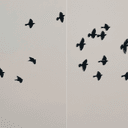
Dr. Roya Boroumand
In the August 2023 episode of Discussions with DPIC, Anne Holsinger, Managing Director of DPIC, speaks with Dr. Roya Boroumand (pictured), Executive Director of the Abdorrahman Boroumand Center for Human Rights in Iran. A specialist in Iran’s post-World War 2 history, Dr. Boroumand provides historical context for ongoing events and discusses the current increase in executions.
“My understanding as someone who has documented executions since the early days of the revolution is that capital punishment for the Islamic Republic authorities is not necessarily a tool for crime control, but it’s rather a means to spread fear in society,” states Dr. Boroumand. She explains that the use of capital punishment since the 1979 revolution has been “generally extremely high” and “politically motivated,” often used by leaders as “as a means to establish themselves and eliminate potential rivals or threats” and maintain power.
Over the last year and a half Iran has aggressively used the death penalty. In 2022, Iran experienced an 83% increase in executions from the prior year, leading the world in known executions with 576, according to Amnesty International. In the first half of 2023 alone, 354 people were executed, marking a 36% increase from the same period last year, according to Norway-based Iran Human Rights’ mid-year report. As of August 31, 2023, the execution count is at 489.
“I believe that in times of instability and when Iran’s leaders have to compromise internationally, which they see as a sign of weakness, they feel like they have to remind citizens that they do and will kill,” says Dr. Boroumand, who supports this theory with past and present-day examples. Most recently, nationwide protests were sparked in mid-September 2022 following the death of Mahsa Jina Amini while in custody of the morality police. The protests “centered around women’s rights initially,” says Dr. Boroumand, “and evolved to question the legitimacy of clerical rule as a whole and created a new context and challenged the state narrative, …its popular basis, and its own legitimacy.” The protests were diverse both geographically and demographically, creating “a major challenge to the state.”
As for the groups most at risk for executions, Dr. Boroumand explains that “executions target the relatively poor and vulnerable protesters, the ones without strong family and civil society connections.” She says: “Politically motivated executions and executions on drug charges” – which accounted for 44% of executions in 2022 – “specifically tend to affect the poor and minority communities such as the Baluchis, the Arabs, the Kurds, who are very disproportionately affected… [O]ne analysis would be that executions of members of those communities have a lower political cost for the state internally, inside the country.”
Although Iran has received international condemnation over recent executions, Dr. Boroumand emphasizes that there should be increased media coverage of case details. Furthermore, she says that “people who…have no qualms in killing their own people will have no qualms killing other people,” highlighting that “there is a strong relationship, interconnection between what happens inside Iran and what the Iranian leaders do outside Iran.” She adds that “foreign policy and the internal politics are not separated…And I think that as long as these two are considered as separate issues and discussed and negotiated separately, we will have what we have had in the last 40 years.”
Discussions with DPIC podcast, Dr. Roya Boroumand discusses capital punishment in Iran, Death Penalty Information Center, August 28, 2023



